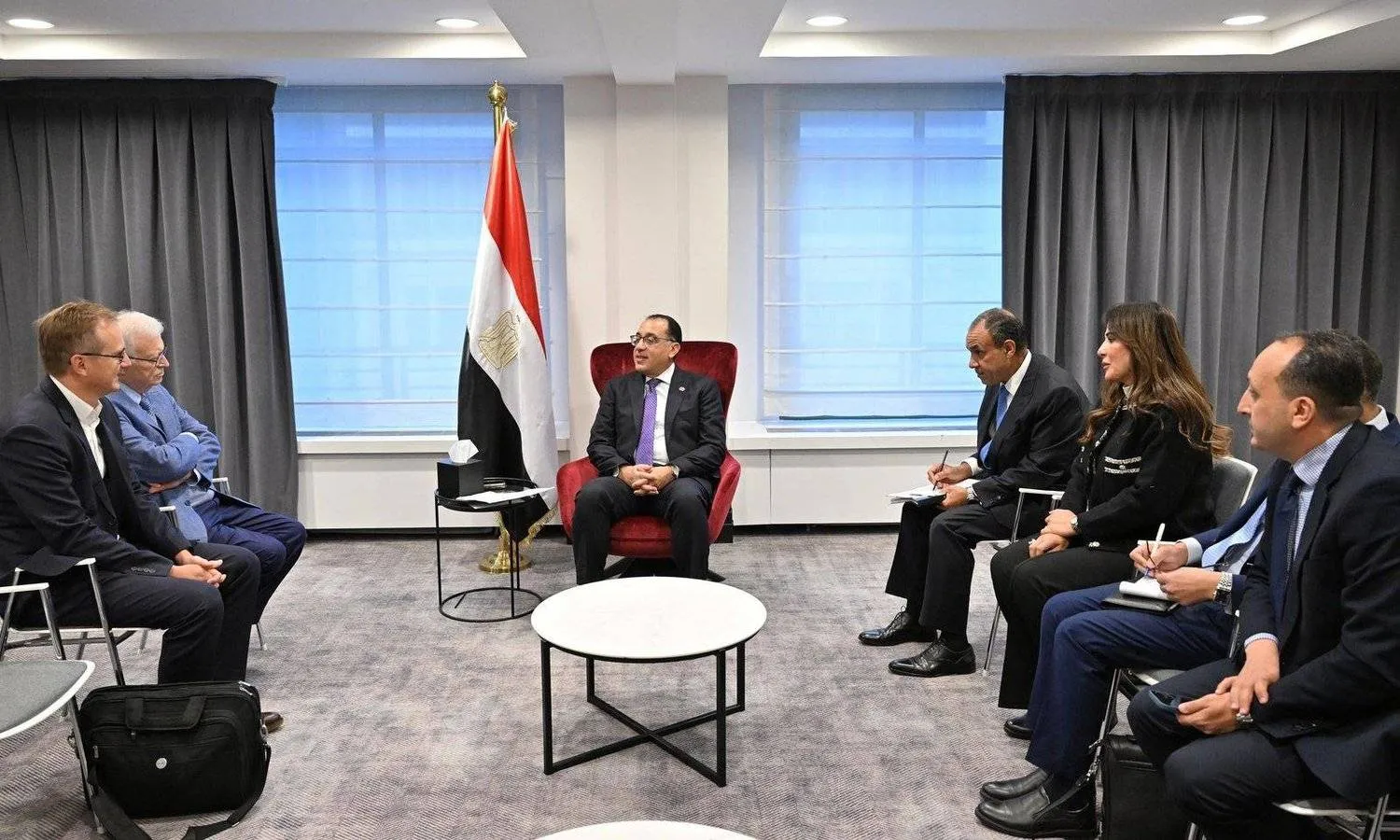The Egyptian government on Tuesday approved the signing of a memorandum of understanding between the Egyptian Electricity Transmission Company and Belgian builder Jan De Nul to begin studies on a project to export electricity from renewable energy from Egypt to Europe via a Mediterranean Sea line.
Egyptian Prime Minister Mostafa Madbouly termed the project as “strategic” to Egypt and Europe, noting that Egypt plans to extend marine electricity transmission lines to several European countries.
This came during his meeting with De Nul Jean-Peter Joseph, the CEO of Jan De Nul company that specializes in building and maintenance of marine infrastructure, and Wim Dhont, Manager Offshore Cables at Jan De Nul Group.
The meeting was also attended by Egyptian Minister of Electricity Mohamed Shaker and Ambassador of Egypt to Belgium and the EU Ambassador Badr Abdel Ati.
It was held on the sidelines of the Global Gateway Forum organized by the European Commission on 25 and 26 October.
Madbouly noted that many international firms are interested in investing in marine cable projects, adding that Egypt can export electricity to Europe but this is hinged on the implementation of the electrical interconnection network with the continent.
The minister added that the climate challenges are accelerating, and this requires increasing investments in renewable energy.
For his part, the CEO of the company showcased the company’s work mechanism, how to lay cables in the deep sea, and the company’s previous work in this domain.
Moreover, he expressed the company’s readiness to cooperate with Egypt in similar projects for electrical interconnection between Egypt and European countries wishing to obtain electricity from Egypt.
The CEO stressed that North Africa is expected to be a prime source in exporting electricity generated from renewable energy to Europe given its high potential in this field.
He went on to say that renewable energy is “the future”.
Meanwhile, the Cabinet announced that the first phase of the Belgian company Demi's project to produce green hydrogen in the port of Jargoub in Egypt will cost about $3 billion.
It added in a statement that Demi CEO Luc Vandenloeck said during his meeting with the Egyptian PM that the company is interested in expanding green hydrogen projects in Egypt.
The statement added that the project will be implemented in three phases









